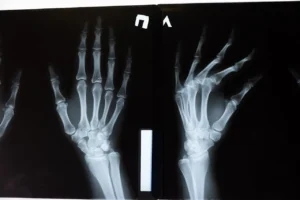
UCB, a global biopharmaceutical company, announced that the Journal of Neurology has published data from the Phase 3 RAISE study and the ongoing RAISE-XT open-label extension (OLE) study on the long-term effects of zilucoplan on fatigue in adult patients with mild to severe anti-acetylcholine receptor antibody-positive (AChR-Ab+) generalized myasthenia gravis (gMG).
The results demonstrated that patients treated with once-daily subcutaneous injections of the complement C5 inhibitor zilucoplan experienced significant and sustained improvements in fatigue for over a year. Clinically meaningful improvement from baseline was defined as a change of −3.5 points.
“For people living with gMG, fatigue can be debilitating and significantly impact daily life,” said Donatello Crocetta, MD, Head of Global Rare Disease and Rare Medical at UCB. “This analysis highlights ZILBRYSQ’s role in managing an important yet understudied symptom of gMG. It follows last year’s publication in The Lancet Neurology, which reported significant improvements in various MG-specific outcomes. UCB is committed to offering targeted treatments that reduce the burden of gMG, providing patients with flexible options that fit their lives.”
The analysis showed that mean Neuro-QoL Short Form Fatigue T-scores improved from double-blind baseline to Week 12 in the zilucoplan group (n=86) with a significant difference versus placebo (n=88; least squares mean difference: −3.61 [p=0.0060]). These improvements were sustained up to Week 60 (mean [SE] CFB −9.15 [1.80]). At Week 12, 47.2% of patients on zilucoplan saw improvements in fatigue severity compared to 28.4% in the placebo group (p=0.017). Improvements in fatigue continued into the RAISE-XT study, sustained up to Week 60 (mean [SE] CFB −10.71 [1.81]). Among patients who switched from placebo to zilucoplan, improvements were seen as early as Week 13.
By Week 60, most patients showed improvements from severe or moderate fatigue to mild or no fatigue. These findings were consistent across the zilucoplan group and the placebo-switch group.
“These results are crucial as they represent the first analysis of T-score transformation of Neuro-QoL Short Form Fatigue scores in MG patients in a Phase 3 study, highlighting the clinical significance of these data,” said Michael Weiss, Professor of Neurology at the University of Washington and lead author of the paper. “Fatigue is one of the most debilitating symptoms in gMG and a major contributor to reduced quality of life. It is important for clinicians to routinely measure fatigue as part of the overall assessment of MG symptoms.”
Zilucoplan was well tolerated with a favorable long-term safety profile. Out of 200 patients, 94% experienced a treatment-emergent adverse event (TEAE), and 32% experienced serious TEAEs. The most common TEAEs included worsening of MG (26%), COVID-19 (24.5%), headache (17.5%), diarrhea (15%), and nasopharyngitis (15%). Seventeen patients (8.5%) permanently withdrew from treatment due to TEAEs.
gMG is a rare, chronic autoimmune disease characterized by neuromuscular junction dysfunction and damage. Pathogenic AChR autoantibodies trigger the classical complement pathway, leading to damage at the neuromuscular junction. Preventing the formation of the membrane attack complex (MAC) helps preserve neuromuscular transmission.
Zilucoplan has been approved by the European Commission, US FDA, Japanese Ministry of Health, Labour and Welfare, and the UK Medicines and Healthcare products Regulatory Agency for treating gMG. It is currently under review by the Australian Therapeutic Goods Administration and Health Canada, with responses expected in 2024.
RAISE (NCT04115293) was a Phase 3, randomized, double-blind, placebo-controlled study confirming the efficacy and safety of zilucoplan in AChR-Ab+ gMG patients. Patients who completed RAISE could enter the RAISE-XT open-label extension study (NCT04225871), continuing to receive daily subcutaneous zilucoplan doses.
gMG has a global prevalence of 100–350 cases per million people. Symptoms include severe muscular weakness, double vision, drooping eyelids, difficulty swallowing, and potentially life-threatening respiratory muscle weakness. Pathogenic autoantibodies disrupt neuromuscular transmission, resulting in weakened muscle contractions.




